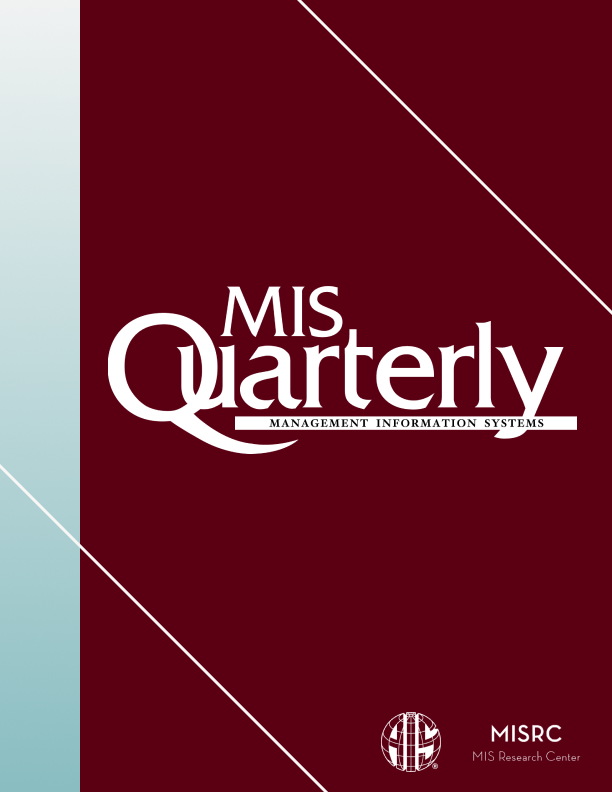The Fault in Our Stars: Molecular Genetics and Information Technology Use
IF 6
2区 管理学
Q1 COMPUTER SCIENCE, INFORMATION SYSTEMS
引用次数: 0
Abstract
There is a growing interest in understanding the role of genetics in explaining heterogeneity in behaviors, including those related to information systems (IS). The majority of the recent genetics research focuses on searching the entire genome in genome-wide association studies (GWASs) to link DNA to human traits. The results of GWASs can be used on datasets to compute a measure of genetic propensity known as a polygenic score, or PGS. PGSs are widely viewed as the future of genetics research. We conducted an exploratory study, in the context of information technology (IT) use, to examine if the PGS approach can be used to better understand the role of genetics in IS research. Consistent with our hypotheses, genetic endowments associated with Educational Attainment and General Cognition positively predict technology use, and genetic endowments associated with Neuroticism, Depressive Symptoms, Myocardial Infarction, and Coronary Artery Disease negatively predict technology use more than half a century later (genetic endowments are established at conception and our sample consists of individuals aged 50 to 80). Many of the characteristics known to be associated with heterogeneity in IT use (e.g., trust, education) appear to be mediators linking PGSs to IT use. Nonetheless, a number of PGSs maintain meaningful direct effects.我们星星上的错误:分子遗传学和信息技术的使用
人们对理解遗传学在解释行为异质性中的作用越来越感兴趣,包括那些与信息系统(is)相关的行为。最近的遗传学研究主要集中在全基因组关联研究(GWASs)中寻找整个基因组,以将DNA与人类特征联系起来。GWASs的结果可以用在数据集上,用来计算一种被称为多基因评分(PGS)的遗传倾向测量方法。pgs被广泛认为是遗传学研究的未来。我们在信息技术(IT)使用的背景下进行了一项探索性研究,以检查PGS方法是否可以用于更好地理解遗传学在IS研究中的作用。与我们的假设一致,与受教育程度和一般认知相关的遗传禀赋对技术使用有积极的预测作用,而与神经质、抑郁症状、心肌梗死和冠状动脉疾病相关的遗传禀赋对半个多世纪后的技术使用有消极的预测作用(遗传禀赋是在怀孕时建立的,我们的样本由50至80岁的个体组成)。许多已知与IT使用的异质性相关的特征(例如,信任、教育)似乎是将pgs与IT使用联系起来的中介。尽管如此,许多pgs仍然保持着有意义的直接影响。
本文章由计算机程序翻译,如有差异,请以英文原文为准。
求助全文
约1分钟内获得全文
求助全文
来源期刊

Mis Quarterly
工程技术-计算机:信息系统
CiteScore
13.30
自引率
4.10%
发文量
36
审稿时长
6-12 weeks
期刊介绍:
Journal Name: MIS Quarterly
Editorial Objective:
The editorial objective of MIS Quarterly is focused on:
Enhancing and communicating knowledge related to:
Development of IT-based services
Management of IT resources
Use, impact, and economics of IT with managerial, organizational, and societal implications
Addressing professional issues affecting the Information Systems (IS) field as a whole
Key Focus Areas:
Development of IT-based services
Management of IT resources
Use, impact, and economics of IT with managerial, organizational, and societal implications
Professional issues affecting the IS field as a whole
 求助内容:
求助内容: 应助结果提醒方式:
应助结果提醒方式:


